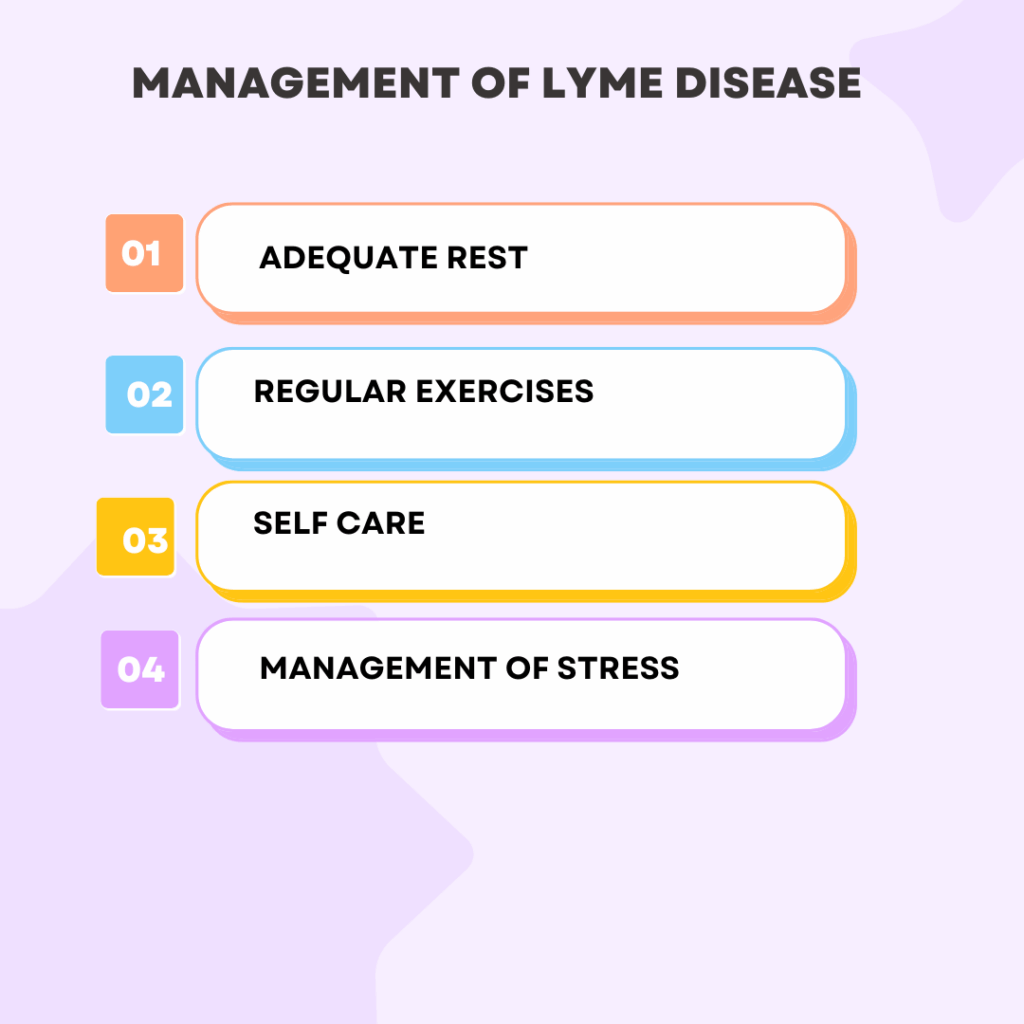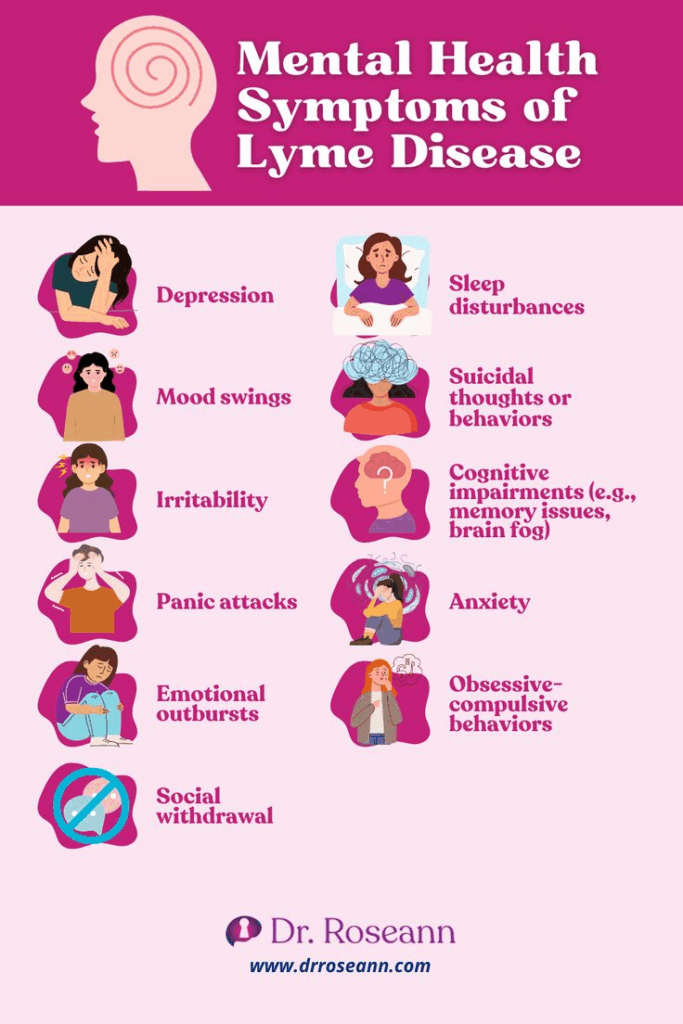From Fatigued and Foggy to Clarity: Discovering Lyme Disease


Have you ever noticed persistent symptoms, like fatigue, fever, chills, rashes on the skin etc. Sometimes, you may not pay attention to these symptoms. Lyme disease is caused by a tick bite, that can lead to the above clinical symptoms. This condition is caused by the bacterium Borrelia burgdorferi. The clinical symptoms include brain fog, muscle pain, bull’s eye rashes, etc.
Have you wondered how Lyme disease can cause fogging in the brain? Can Lyme disease affect the mental clarity of an individual? This blog makes you understand various clinical symptoms of Lyme’s disease and how it affects the life of an individual.
What are the first signs of Lyme disease that most people ignore?
According to the Centers for Disease Control and Prevention (CDC), 70-80% of the individuals with Lyme disease get skin rashes after the tick bite. The lesion appears as uniformly round and gets bigger in size.
You may also experience a mild fever or body aches. If skin rashes are absent, you may think that fever is normal and might be associated with allergic rhinitis. Sometimes, patients may also experience swelling of lymph nodes, muscle, and joint pain.
Skin rashes:
Appear at the site of the tick bite after 3 to 30 days
- There is an increase in the size of the lesion up to 12 inches.
- The lesion can appear itchy and painful
- Appears on any part of the body

Can Lyme disease cause brain fog and anxiety?
Lyme disease is an inflammatory condition that can cause brain fog. When the pathogens (spirochetes) crosse the blood-brain barrier, the central nervous system will be affected. Major neurocognitive issues include low memory, reduced thinking capacity, etc.
According to a study, it is estimated that brain scans performed on 12 patients with post-treatment Lyme disease syndrome showed a brain chemical marker that indicates inflammation. (3)
In order to treat brain fog, various therapeutic strategies are used, such as antibiotics, anti-inflammatory medications, herbal supplements, adequate rest, etc can be employed.
Once this bacteria crosses the blood brain barrier, there will be inflammation in the nervous system which can manifest as anxiety. Major psychiatric manifestations include panic attacks, bipolar disorder, etc.
How can I know if my fatigue is Lyme-related?
If you have a recent tick bite, unexplained fatigue can be associated with Lyme disease. Fatigue can also be accompanied by muscle pain and chills.
If these symptoms are observed within weeks after a tick bite, it could be due to the immune response of the body against the bacteria. When the infection advances, fatigue can progress and hamper the health of the individual.
What can life coaches do to support clients with Lyme?
Life coaches play an important role in optimizing the health of the patient. They can empower the patient to overcome difficulties. The sessions will be oriented according to the needs of the patients and provide personalized care. Life coaches focus on following practices to improve the health condition of the patients.
- Managing stress levels
- Adequate rest
- Regular exercises
- Practices to improve self-care

Can Lyme disease affect mood and mental clarity?
Lyme disease is a condition that affect central nervous system, causing psychiatric symptoms. There will be involvement of CNS in 40% of the patients with Lyme’s disease. Certain psychiatric reactions such as dementia, clinical depression, OCD, etc have been reported in patients with Lyme disease.
It has been reported that around 476000 cases of lyme disease are reported in the United States. Lyme disease can coexist along with other infections in the body. It has been detected as the major cause of various mental health impact issues, such as:
- Lyme disease is associated with the post-infection depression incidence of 98%. When Lyme disease is misdiagnosed, clinical depression and anxiety can occur.
- Schizophrenia: Schizophrenia is a chronic mental health condition that affects the behavior and thought process of an individual and is noted in patients with Lyme disease.
- Bipolar disorder: Patients with Lyme disease exhibit extreme mood variations.
- Eating disorders: Patients with Lyme disease exhibit anorexia nervosa, gain in weight, etc. Sleep disorders, like insomnia, are also observed in patients with Lyme disease.
- When the brain’s frontal region is affected, advanced form of dementia can occur leading to loss of memory, dilemma, personality changes, etc.
- Neurological disorders can also manifest as seizures. There is an increased chance of occurrence of seizure disorders in patients with Lyme disease.
- Suicide: Pain associated with the Lyme disease can cause suicidal thoughts. It has been estimated that around 1200 suicidal cases occur in the United States.
- Individuals who are diagnosed with Lyme disease experience panic attacks that can persist for hours.

Is chronic fatigue a common symptom in early Lyme disease?
Chronic fatigue can be associated with post-treatment Lyme disease syndrome. If the disease is not managed properly, chronic fatigue can be present in later stages of life. PTLDS is a condition where the patient experiences persistent symptoms and the cause is not known.
Case study:
An African-American male patient was misdiagnosed for 7 weeks. The patient exhibited common symptoms of Lyme’s disease. Diagnostic errors can lead to ineffective therapy and worsening of clinical symptoms.
When the initial diagnosis of the patient is delayed, the clinical symptoms become more severe, and there is a higher chance of involvement of the central nervous system.
The patient had meningitis, along with seventh nerve palsy. The patient exhibited major clinical symptoms, such as:
- Skin rashes
- Fever
- Chills
- Facial nerve paralysis
- Pain in the neck region
Due to the diagnostic errors, the clinical symptoms worsened and did not resolve completely even after the aggressive treatment. As a result, the patient’s quality of life was negatively impacted.
The above case study reveals that African-American patients are at increased risk of misdiagnosis.
Conclusion
- Lyme disease is a complex condition that comprises rashes, fatigue, etc.
- If the condition is left untreated, certain complications can occur, such as brain fog and mental health disturbances.
- Early detection and appropriate treatment are important to prevent long-term complications.
References
- AARP. Early Lyme disease symptoms you shouldn’t ignore [Internet]. Washington, DC: AARP; [updated 2023 May 22; cited 2025 Jun 6]. Available from: https://www.aarp.org/health/conditions-treatments/early-lyme-disease-symptoms/
- Centers for Disease Control and Prevention. Signs and symptoms of Lyme disease [Internet]. Atlanta (GA): CDC; [updated 2023 Mar 29; cited 2025 Jun 6]. Available from: https://www.cdc.gov/lyme/signs-symptoms/index.html
- Crystal J. Dealing with brain fog: brain fog and Lyme disease [Internet]. Stamford (CT): Global Lyme Alliance; 2019 Dec 24 [cited 2025 Jun 6]. Available from: https://www.globallymealliance.org/blog/dealing-with-brain-fog
- Sultenfuss D. How health and wellness coaching helps you manage Lyme disease [Internet]. [place unknown]: Denise Sultenfuss; 2022 May 11 [cited 2025 Jun 6]. Available from: https://www.denisesultenfuss.com/how-health-and-wellness-coaching-helps-you-manage-lyme-disease/
- Logigian EL, Kaplan RF, Steere AC. Chronic neurologic manifestations of Lyme disease. N Engl J Med [Internet]. 1990 Nov 22 [cited 2025 Jun 6];323(21):1438–44. Available from: https://pubmed.ncbi.nlm.nih.gov/7943444/

